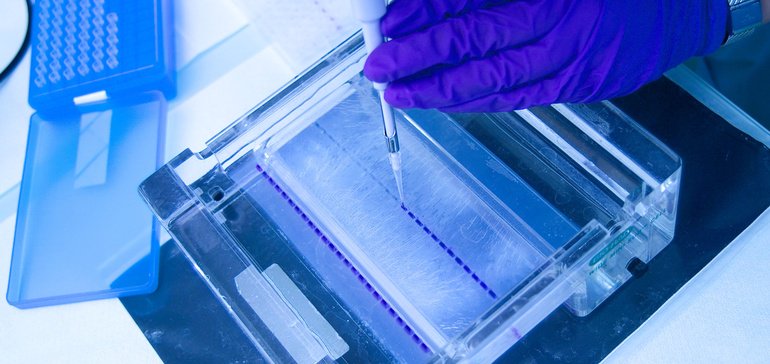“It could become very challenging for a small biotech company, or even a pharma company, to cover that part of a clinical trial test,” said Craig Tendler, an executive responsible for late-stage oncology development at Janssen, in an interview with BioPharma Dive.
The American Society of Clinical Oncology says most health insurance will cover a patient’s genetic sequencing, provided a physician recommended it. Even so, some plans limit who can receive the tests and expect reimbursement.
In cases where insurance won’t cover the screens, drug companies have to foot the bill.
To be sure, that bill has come down dramatically since the early days of human genome sequencing. Vivek Subbiah, an associate professor at MD Anderson Cancer Center at the University of Texas, told BioPharma Dive there are labs that can do it for $5,000 per patient, or even as low as $1,000 per patient.
Nevertheless, such a price point can add up. Using, as an example, AstraZeneca’s Lynparza study and the lower end of Subbiah’s estimates, the company could have spent upwards of $3 million on screenings alone if it was the sole party paying. (An AstraZeneca spokesperson said the company did cover all the screening costs but did not have estimates on the associated costs.)
That sum isn’t much for AstraZeneca, which spent nearly $6 billion on R&D last year. But it can be more significant for early-stage biotechs, especially as other costs associated with clinical trials rise.
Ned Sharpless, former director of the National Cancer Institutes and acting head of the Food and Drug Administration, noted to attendees at this year’s Biotechnology Innovation Organization conference that clinical trial costs have “skyrocketed” over his time in the industry. Targeted drugs and a better understanding of tumor biology can help improve success rates, but add new complexity.
“When I started my career as a cancer researcher, we had one kind of breast cancer. Now we have 10 kinds,” he said at the conference earlier this week.
“There is this fragmentation,” he added, “that makes clinical trials much harder. If you want to enroll 1,000 patients … it is very challenging.”
The costs, however, appear worth it.
The targeted approach has already driven powerful responses in breast, lung and thyroid cancers, among many others, as well as an ever-increasing number of drug approvals.
Pfizer chalked up four in the span of two months late last year. For smaller biotechs, the success of Loxo Oncology with its drug Vitrakvi is a model to follow.
Part of the draw, according to Sharpless, is an idea that because targeted drug trials are only going after a very narrowly defined kind of patient, they are more likely to show significantly positive benefits.
“[W]e are doing 80-person trials or 120-patient trials, but they’re all molecularly defined,” he said in an interview with BioPharma Dive late last year. “We’re comparing apples to apples and not apples to oranges.”
That may help explain why, despite the difficulties posed by sequencing or other clinical trial logistics, many companies are pushing further into targeted cancer drug research.
Between January and March, Blueprint Medicines spent $16 million — or almost triple what it did during the same period last year — on R&D for its drug that goes after cancers with RET mutations.
Turning Point Therapeutics, which just recently went public, reported for the first quarter a 123% year-over-year increase in R&D expenses related to its tyrosine kinase inhibitor, repotrectinib.
Mirati Therapeutics also saw R&D expenses jump up in the first quarter, due in part to the $4.6 million put toward a Phase 1 trial of its drug aimed at the an oncogene called KRAS.
Though investments are piling up, targeted drug research still has maturing to do.
An ongoing debate between industry, academia and regulators has centered around what makes a good design for these clinical trials.
As a result, the FDA put out last year final guidance documents on modernizing drug development and clinical trials, which included recommendations on how to appropriately test therapies for patients with rare genetic variants.
Doctors say these clinical trials are complicated beyond just finding patients with the right mutations.
“A lot of them are designed to where you have to be like an athlete with perfect organ function in fantastic shape to get onto the study,” said Suzanne Cole, a medical oncologist at University of Texas Southwestern Medical Center.
“That’s not the reality for a cancer patient, so there can be really minor things that throw them off and it’s close to them,” she said. “There’s a lot of barriers for people getting onto trials.”







